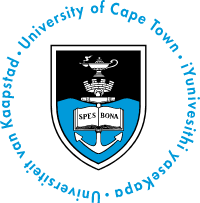UCT Fees 2026 – Registration Fees
The University of Cape Town (UCT) is South Africa’s oldest and one of the most prestigious universities, consistently ranked among the top universities globally. Known for its academic excellence, world-class faculty, and research-driven programs, UCT is a popular choice for both local and international students.
If you’re planning to study at UCT in 2026, understanding the tuition fees is crucial for budgeting purposes. UCT’s fees vary depending on the program you choose, and the university offers a range of undergraduate and postgraduate courses in various fields, including humanities, business, science, engineering, law, and health sciences.
In this comprehensive guide, we will break down the tuition fees for different programs at UCT for 2026, including undergraduate and postgraduate courses, as well as additional expenses like registration fees, accommodation, and study materials. We will also look at available financial assistance options to help you manage the costs of studying at one of the leading universities in Africa.
About the University of Cape Town (UCT)
Founded in 1829, the University of Cape Town (UCT) is renowned for its commitment to academic excellence and research output. It is located in Cape Town, South Africa, and has a diverse student body, offering a range of programs across six faculties:
- Faculty of Commerce
- Faculty of Engineering & the Built Environment
- Faculty of Health Sciences
- Faculty of Humanities
- Faculty of Law
- Faculty of Science
UCT offers both undergraduate and postgraduate programs. In addition to its prestigious reputation, UCT has earned high marks for social responsibility, research in various fields, and being a leader in public engagement.
UCT Fees for 2026
UCT follows a modular fee structure, meaning that students pay per module they register for, rather than a flat fee for the entire year. Tuition fees also vary according to the faculty and course of study. Below, we will break down the approximate costs of studying at UCT based on your academic level and faculty.
1. Undergraduate Programs Fees 2026
Undergraduate fees at UCT are based on the number of modules you register for. Each module has a fee, and depending on the program, the number of modules required can vary.
Undergraduate Degree Programs (e.g., BA, BSc, BCom)
For most undergraduate programs, the general fee range is as follows:
- Humanities, Social Sciences, and Arts Programs: R50,000 – R60,000 per year
- Programs like Bachelor of Arts (BA), Bachelor of Social Science (BSS), and Bachelor of Music (BMus) typically fall in this range. These programs tend to have fewer practical sessions and specialized equipment requirements.
- Commerce Programs (e.g., BCom, BAcc, BBusSc): R60,000 – R75,000 per year
- Commerce degrees such as Bachelor of Commerce (BCom), Bachelor of Accounting (BAcc), and Bachelor of Business Science (BBusSc) are slightly more expensive due to the higher demand for resources like specialized software and business labs.
- Engineering & Built Environment Programs: R70,000 – R85,000 per year
- Programs like Bachelor of Science in Engineering (BScEng) and Bachelor of Architecture (BArch) often have higher fees due to the practical nature of the coursework and the requirement for materials, equipment, and specialized facilities.
- Health Sciences Programs: R80,000 – R100,000 per year
- Programs like Bachelor of Medicine and Surgery (MBChB) and Bachelor of Science in Physiotherapy (BSc Physiotherapy) have high fees due to the practical training required, such as clinical sessions and hospital placements.
- Law Programs (e.g., LLB): R60,000 – R75,000 per year
- The Bachelor of Laws (LLB) degree typically costs between R60,000 and R75,000 per year. This range varies depending on whether the program is more focused on practical legal training or academic coursework.
Additional Undergraduate Fees
In addition to tuition, students will also need to budget for the following additional fees:
- Registration Fee: R3,000 – R5,000 (non-refundable)
- All new and returning students must pay a registration fee to secure their place at UCT. This fee is non-refundable and is separate from the tuition fees.
- Study Materials & Textbooks: R2,000 – R5,000 per year
- Costs for textbooks, e-books, and study materials depend on the program. Some courses, especially in the sciences and engineering, may require additional resources like lab materials and software.
- Examination Fees: R1,000 – R2,000 per year
- UCT charges a fee for examinations depending on the number of modules you register for. This fee generally ranges between R1,000 and R2,000 per year.
- Accommodation Fees: R40,000 – R80,000 per year
- For students wishing to live on-campus, accommodation costs are significant, with rates typically ranging from R40,000 to R80,000 per year, depending on the type of residence. Off-campus accommodation costs can vary depending on the area and proximity to campus.
- Meal Plans: R10,000 – R20,000 per year
- Meal plans are available for students living on campus or nearby, and students should budget for food and other personal expenses. Costs can vary significantly depending on whether students opt for on-campus meal plans or prepare their own meals.
2. Postgraduate Programs Fees 2026
Postgraduate fees at UCT tend to be higher than undergraduate fees, as they often involve specialized programs or research.
Master’s Degrees (e.g., MA, MSc, MCom, MBA)
- Tuition Fees: R40,000 – R90,000 per year
- The cost of a Master’s degree varies significantly depending on the field. For example:
- Master of Business Administration (MBA): R80,000 – R90,000 per year.
- Master of Science (MSc): R50,000 – R70,000 per year.
- Master of Commerce (MCom): R40,000 – R60,000 per year.
- The cost of a Master’s degree varies significantly depending on the field. For example:
Doctoral Programs (PhD)
- Tuition Fees: R45,000 – R120,000 per year
- Doctoral programs are often heavily research-based and require fewer modules but incur higher costs due to the need for supervision, specialized resources, and research funding. A PhD in Engineering or Health Sciences may cost more than a PhD in Humanities or Social Sciences.
Additional Costs for Postgraduate Programs
- Registration Fees: R3,000 – R5,000
- Like undergraduate students, postgraduate students are required to pay a registration fee.
- Study Materials & Research Costs: R3,000 – R10,000 per year
- Postgraduate students may incur additional costs for research materials, fieldwork, and attending conferences or seminars.
- Examination Fees: R1,000 – R3,000 per year
- Some postgraduate programs require students to pay additional fees for exams, especially if these are subject to external moderation.
- Accommodation & Meals: Varies
- Postgraduate students can also choose to stay on campus or rent private accommodation. The associated costs will depend on the type of living arrangement.
UCT Financial Aid and Scholarships for 2026
UCT offers various financial aid options to assist students with their tuition fees and other study-related costs.
1. NSFAS (National Student Financial Aid Scheme)
UCT participates in the NSFAS program, which offers government funding to eligible South African students who demonstrate financial need. NSFAS can cover tuition fees, accommodation, books, and other expenses. The program is open to South African citizens who meet the required income threshold.
2. UCT Bursaries
UCT offers a range of internal bursaries based on academic performance, financial need, and specific fields of study. There are various bursaries for undergraduate and postgraduate students, especially for those in need of financial assistance.
3. External Scholarships
UCT students are also eligible to apply for external scholarships offered by private foundations, corporate entities, and international organizations. Scholarships may cover tuition fees, living expenses, and other study-related costs.
4. Payment Plans
UCT offers payment plans to students who are unable to pay the full tuition upfront. Students can inquire about installment options and plan their payments accordingly.
The tuition fees at the University of Cape Town (UCT) for 2026 vary depending on your program of study. Undergraduate programs generally range from R50,000 to R100,000 per year,
while postgraduate programs can cost anywhere between R40,000 and R120,000 annually.
Additional costs such as registration fees, study materials, accommodation, and meal plans should also be factored into your budget when preparing for study at UCT. Financial aid options such as NSFAS, bursaries, and external scholarships are available to assist students in managing these costs.
For more information about UCT’s tuition fees, registration, and financial aid, visit the official UCT website.

